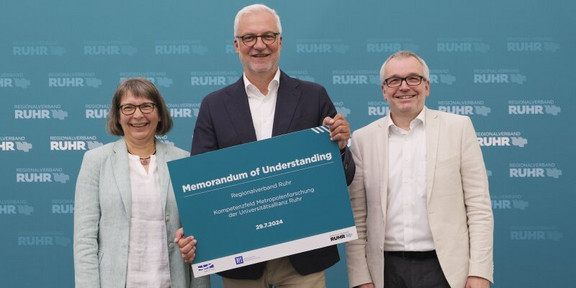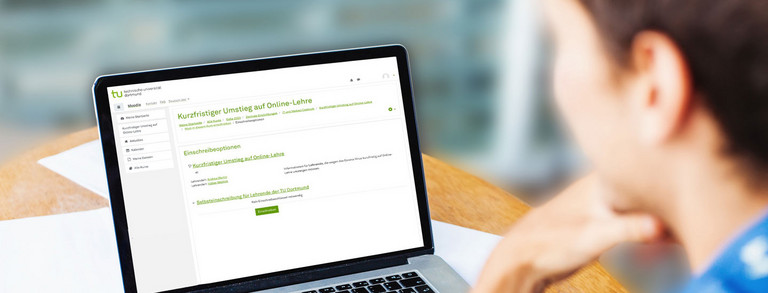UA Ruhr competence field "Metropolitan Research" extends cooperation with the RVR
- UA Ruhr
- Research

The five-year successful cooperation between the University Alliance Ruhr's Competence Field Metropolitan Research (KoMet) and the Ruhr Regional Association (RVR) has been extended. RVR Regional Director Garrelt Duin and the KoMet spokespersons have signed a Memorandum of Understanding for a further five years.
Goals of further cooperation
The aim is to strengthen the region as a science location and promote knowledge transfer between universities, municipal administrations and business. In this way, the necessary transformation processes for a sustainable Ruhr metropolis are to be shaped both in a practice-oriented and scientifically based way. KoMet forms the central platform for the integration of research, teaching and transfer on all aspects of metropolitan research in the University Alliance Ruhr. Prof. Dr. Uta Hohn, KoMet spokesperson at Ruhr University Bochum, explains: "Members of KoMet are involved in the transformation processes of the Ruhr region in a variety of ways. The aim of the cooperation with the RVR is to contribute to cooperative and public welfare-oriented urban and regional development in line with the New Leipzig Charter through collaboration in teaching, research and transfer. In addition, the region is to be more closely involved in international exchange and knowledge transfer on metropolitan transformation processes." The agreement is based on a work programme that will be fleshed out by the autumn.
Science and research for the future viability of the Ruhr region
Metropolitan research sounds theoretical, but it encompasses practical issues such as mobility and logistics, urban health, urban ecosystems or urban design, society and culture. In other words, everything that is important for the living environment of over five million people and for the location and economic development of the Ruhr region. On the part of the RVR, fields of action such as mobility, regional development and leisure planning, education and social affairs are included. Garrelt Duin, RVR Regional Director, emphasizes: "Many of the current social challenges are closely linked to science and research and can only be solved with their help. The aim of our cooperation with KoMet is therefore to jointly initiate innovations for the future viability of the Ruhr region. At the same time, we want to promote the transfer of science and practice by making the region visible as an exciting place to research, work and live." Prof. Dr. Thorsten Wiechmann, KoMet spokesperson at the TU Dortmund University, adds: "The Ruhr region has developed into a knowledge region with a dense university landscape. However, hardly any vibrant knowledge districts have emerged. Qualifying the science locations in their regional networking to become urban meeting places with optimized mobility offers and attractive open spaces and strengthening their impact on society are strategic challenges of future-oriented regional development."
Joint projects
RVR and KoMet want to bring together planning practice and scientific research in cooperative projects. All stakeholders can benefit from this and increase the quality of their work through synergy effects. Students can combine academic work with practical experience from specific problems and projects in Master's theses and internships. Furthermore, joint events such as the KoMet Day, the Transformation Talks and competitions are planned as challenges for study projects. Prof. Dr. Jens Martin Gurr, KoMet spokesperson at the University of Duisburg-Essen, puts the projects in context: "With the 'Transformation Talks', a productive joint format has been established in which academics at early career stages can exchange ideas with the leaders of the future from business, local authorities, associations and foundations about transformation obstacles and paths."


